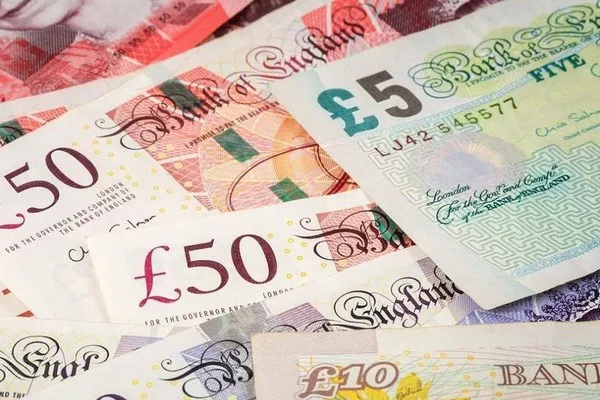In the world of international finance, exchange rates are a constant point of focus for businesses, travelers, investors, and financial analysts. They define the value of one currency relative to another and influence a wide range of economic activities. One of the key currency pairs in this global exchange rate jigsaw is the British Pound (GBP), officially known as the Pound Sterling. In this article, we will explore the current exchange rate for the British Pound and delve into the factors that impact it.
The British Pound: A Brief Overview
The British Pound, often symbolized as £ or GBP, is the official currency of the United Kingdom, which includes England, Scotland, Wales, and Northern Ireland. It is one of the oldest currencies still in use today, with its roots dating back to the 8th century. The Pound is renowned for its distinct symbol – £, which is derived from the Latin word “libra,” meaning a unit of weight or currency.
Key Subunits of the Pound:
Penny (1p): The Pound is subdivided into 100 pennies, each symbolized by “p.” For example, £1 is equivalent to 100p.
Notes and Coins: Pound Sterling is issued in various denominations, including banknotes and coins. Banknotes range from £5 to £50, while coins come in 1p, 2p, 5p, 10p, 20p, 50p, £1, and £2 denominations.
The Current Exchange Rate for the British Pound
Exchange rates fluctuate continually due to various factors, including economic conditions, interest rates, geopolitical events, and market sentiment. As of the most recent data available, the exchange rate for the British Pound to the U.S. Dollar (GBP/USD) is approximately 1.38. This means that one British Pound is equivalent to about 1.38 U.S. Dollars. It’s important to note that exchange rates can change rapidly, so it’s advisable to check with a reliable financial source or currency converter for the most up-to-date rates.
Factors Influencing the British Pound Exchange Rate
Several key factors influence the exchange rate of the British Pound, reflecting the economic dynamics and global influences on the currency. Here are some of the primary determinants:
Interest Rates: The Bank of England, the UK’s central bank, sets interest rates. A higher interest rate in the UK compared to other countries can attract foreign capital, strengthening the British Pound.
Economic Data: Economic indicators such as GDP growth, inflation, and employment figures play a pivotal role in exchange rate movements. Strong economic performance often results in a stronger currency.
Central Bank Policy: The Bank of England’s monetary policy decisions, including interest rate changes, quantitative easing, and asset purchases, can significantly impact currency values.
Geopolitical Events: Geopolitical developments, trade tensions, and global events can trigger market volatility and influence investor sentiment, affecting currency movements.
Trade Relations: The UK’s trade balances and trade agreements can have long-term effects on the exchange rate. Trade tensions or shifts in trade relations can impact the British Pound.
Market Sentiment: Market sentiment can lead to short-term fluctuations in currency values. Positive or negative sentiment about the UK’s economic prospects can influence the Pound’s value.
The Impact of Brexit on the British Pound
The United Kingdom’s decision to leave the European Union, known as “Brexit,” has had a profound impact on the British Pound’s exchange rate. Here are some key points to consider:
Brexit Vote (2016): The GBP/USD exchange rate experienced significant volatility in the lead-up to and aftermath of the Brexit referendum in 2016. The vote to leave the EU led to a sharp depreciation of the Pound.
Brexit Negotiations: Ongoing negotiations between the UK and the EU have continued to influence the exchange rate. Developments in trade agreements and the future relationship between the UK and the EU have led to fluctuations in the Pound’s value.
Market Uncertainty: Uncertainty surrounding the terms of Brexit and the potential economic impact have contributed to market volatility and fluctuations in the Pound’s value.
Managing Exchange Rate Risk
For businesses, investors, and individuals exposed to the British Pound, managing exchange rate risk is crucial. Here are some common strategies to mitigate the impact of exchange rate fluctuations:
Forward Contracts: Businesses can use forward contracts to lock in an exchange rate for a future date, reducing uncertainty in transactions.
Options Contracts: Options provide the right, but not the obligation, to exchange currencies at a specific rate. This allows for protection against adverse exchange rate movements.
Hedging with Financial Instruments: Financial instruments such as currency futures or exchange-traded funds (ETFs) can be used to hedge against currency risk.
Diversification: Diversifying investments and revenue sources across different currencies can reduce the impact of exchange rate fluctuations.
The Pound Sterling: A Symbol of History and Resilience
The British Pound has weathered centuries of economic and political change, evolving into one of the world’s most enduring and respected currencies. Despite the challenges presented by events like Brexit and the ever-changing global economic landscape, the Pound remains a symbol of history and resilience.
Conclusion
The exchange rate for the British Pound, like all currencies, is subject to continuous fluctuations influenced by a multitude of economic, political, and financial factors. Understanding the dynamics of the British Pound exchange rate is essential for businesses, investors, and individuals engaged in international transactions or financial planning. It provides insights into the broader economic landscape and global financial markets, enabling informed decision-making and effective risk management in an increasingly interconnected world.


